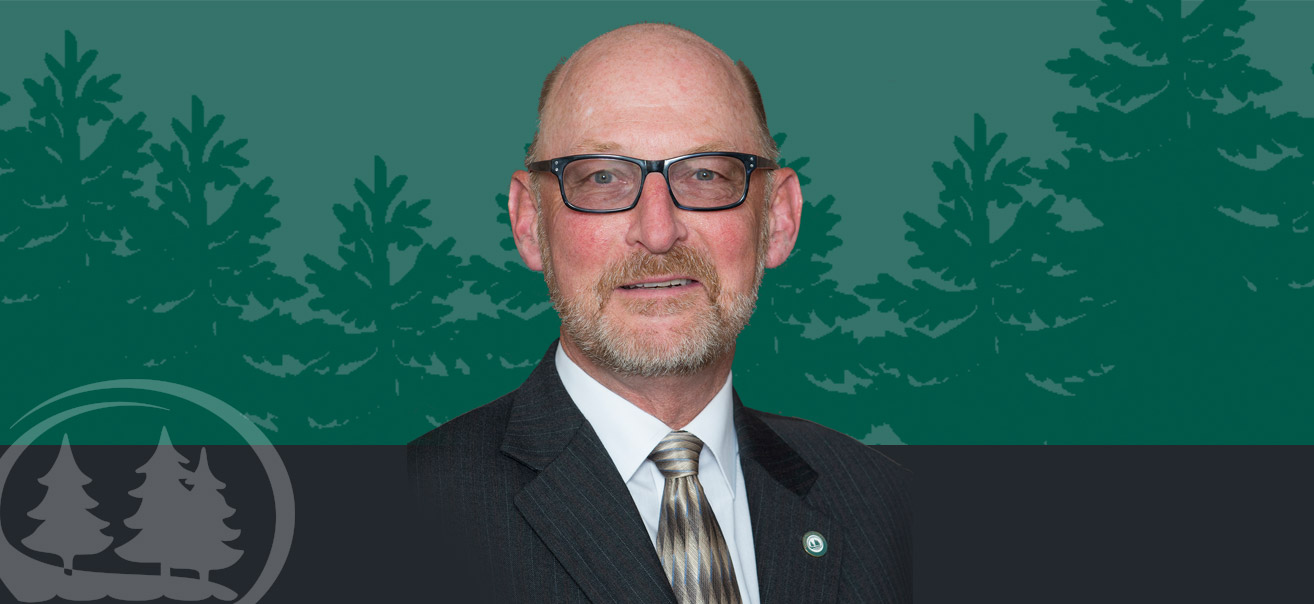
Dr. Jim Barta, dean of the College of Health Sciences and Human Ecology at Bemidji State University, will kick off a newly formed Distinguished Scholar Lecture Series April 2 with a presentation on mathematics and indigenous culture.
The lecture begins at 6:30 p.m. at BSU’s American Indian Resource Center. Admission is free to all.
Barta’s lecture, “Math and Culture: Indigenous Activities and Instruction for Our Students,” begins a five-lecture series that includes faculty from the University of North Dakota, North Dakota State University and the University of Manitoba.
Barta will be sharing his research into ethnomathematics, which studies the relationship between math and cultures.
“For most ‘math’ is a noun and thought of as something fixed, impersonal and rigid,” he said. “For others, including many sharing an indigenous paradigm, ‘math’ is a verb where people name it how they use it.”
His research involves interviewing elders in tribal communities to learn how math was traditionally used in everyday practice such as in beadwork, moccasin or mitten making, home construction, telling time or making a calendar. Using this knowledge as a framework, he explains these traditional activities using modern mathematical concepts. This work illustrates to teachers how the lived experiences of their students can create bridges of understanding and learn the relevance and application of their newly gained knowledge.
Barta has been dean of Bemidji State’s College of Health Sciences and Human Ecology since July 2017 after serving two years as interim dean from 2013-2015. In between, he was dean and professor at Mercer University’s Tift College of Education since 2015. There, he served as the college’s lead administrator at Mercer, which has campuses in Macon, Atlanta, Henry, Douglas and Newnan, Ga.
Before coming to BSU in 2013, he held a variety of administrative and teaching positions including director of the American Indian Teacher Education Program at Utah State University–Eastern, associate department head of regional campus and distance education at Utah State University, assistant and associate professor of education and human services at Utah State University, visiting professor in the Office of First Nation and Inuit Education at McGill University/Concordia University, and assistant professor of early childhood education and reading at Georgia Southern University.
Barta has developed a national and international reputation for his work in ethnomathematics, the study of the relationship between mathematics and culture with a focus on indigenous cultures in the United States, Canada and Central America. For eight years, he led teams of educators providing professional development for Mayan charter school teachers in the rural Highlands of Guatemala. Since 2012 he has served as vice president of Teachers-2-Teachers Global, which develops teams of mathematics coaches who travel to rural villages throughout the world to provide professional development to teachers.
He also serves on the boards of the United States National Commission of Mathematics Improvement and the American Association of Colleges for Teacher Education’s Committee on Global Diversity.
Barta has a bachelor’s degree in industrial science education from Colorado State University, a master’s degree in learning disabilities and emotional behavior disorders from the University of Northern Colorado and a doctorate in curriculum and instruction in early childhood education from the University of Oregon.
Future presentations in the Distinguished Scholar Lecture Series include:
- April 9, 6:30 p.m. — Dr. Tanis Welch, University of North Dakota, “Environmental Influences on Children’s Physical Activity, Enjoyment and Bullying.”
- April 16, 7 p.m. — Dr. Joe Deutsch, North Dakota State University, “Using Fitness Testing Results to Access the Effectiveness of Various Intervention in the Gymnasium.”
- April 23, 6:30 p.m. — Dr. Bradford Strand, North Dakota State University, “Bullying in Sports: Differences in Player and Coach Perspectives and How Do We Change the Culture Through Coaching Education.”
- April 30, 6:30 p.m. — Dr. Joannie Halas, University of Manitoba, “Rec and Read/Aboriginal Youth Mentorship Programs for All Nations.”
The lecture series is sponsored by BSU’s American Indian Resource Center, the North Central Sport Pedagogy Network, Paul Bunyan Communications, Dick’s Plumbing and Heating of Bemidji and First National Bank Bemidji.
Contact
- Dr. Jim Barta, dean, College of Health Sciences and Human Ecology, Bemidji State University; (218) 755-2965, jim.barta@bemidjistate.edu
- Dan Ninham, director, Distinguished Scholar Lecture Series; [coach.danninham@gmail.com]
 Bemidji State University, located amid the lakes and forests of northern Minnesota, occupies a wooded campus along the shore of Lake Bemidji. Enrolling more than 5,100 students, Bemidji State offers more than 80 undergraduate majors and eight graduate degrees encompassing arts, sciences and select professional programs. BSU is a member of the Minnesota State system of colleges and universities and has a faculty and staff of more than 550. The university’s Shared Fundamental Values include environmental stewardship, civic engagement and international and multicultural understanding.
Bemidji State University, located amid the lakes and forests of northern Minnesota, occupies a wooded campus along the shore of Lake Bemidji. Enrolling more than 5,100 students, Bemidji State offers more than 80 undergraduate majors and eight graduate degrees encompassing arts, sciences and select professional programs. BSU is a member of the Minnesota State system of colleges and universities and has a faculty and staff of more than 550. The university’s Shared Fundamental Values include environmental stewardship, civic engagement and international and multicultural understanding.
2018-B-L-088
